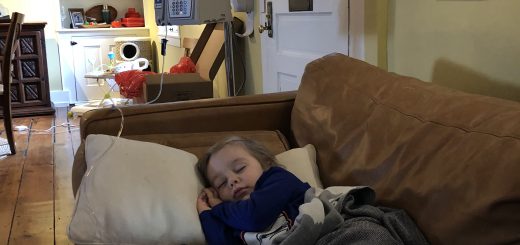Remission isn’t what you might think
Along with relapse, remission is one of the few technical terms that most people are familiar with regarding cancer, but it’s also the most commonly misunderstood at least as far as acute lymphocytic leukemia is concerned.
Remission from A.L.L. is most often achieved by the end of the first month after diagnosis with a roughly 99.99% elimination of leukemic cells from the body, typically resulting in no detectable cells in blood, marrow, and spinal fluid samples. As hoped, Wesley was declared in remission right on schedule.
This does not mean he is out of the blue, or done with treatment – this is the most common misunderstanding, that remission means life can return to normal. At least in the case of childhood A.L.L, remission occurs in the first month of roughly three years of treatment, not at the end.
Once in remission, the focus of treatment is to stay there for good – any relapse (a return of the leukemia cells) means a significant change in prognosis and therapy.
After 10 years of remission he’ll be statistically considered cured, but as there’s no specifically understood mechanism that causes leukemia in the first place, or relapses in the second, remission is only ever considered “cured” by statistically likelihood of relapse, not by anything we’d normally consider a cure.


